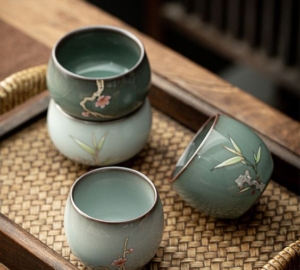You’re essentially building home equity from the moment you start making mortgage payments. Equity is best defined as the difference between your property’s value and what you owe the mortgage company. After a while, homeowners can borrow on the balance and receive a line of credit. A home equity line of credit (HELOC) works similarly to a credit card in that you can access a large sum of cash and repay the balance in monthly installments.

Getting approved for a loan is challenging. So, having a property that you can use as collateral puts you ahead of the game. They even have HELOC for bad credit. Although you can use the line of credit for just about anything, you should be mindful of how you spend the money. Since you have to repay what you borrowed, you must make an informed decision to avoid a potentially negative outcome.
Good And Bad Investments
How do you know what you should use your home equity line of credit for? Let’s take a look at some good and bad investments.
Good: Home Improvements And Repairs
One of the best investments to consider with your line of credit is home improvements and repairs. It’s an economically sound way to put the proceeds back into your home. The right updates and renovations help enhance health, safety, comfort, functionality, and aesthetic appeal. Home improvements can also increase property value, ultimately helping to boost equity.
Bad: Starting A Business
Using your HELOC to start a business isn’t a good investment. The hope is that you can use the profits to pay off the loan once you get started. Although you may have a great idea, statistics show that many businesses fail within the first five years. If you don’t generate enough revenue, you could have a hard time repaying your line of credit. As you should know, failure to repay the balance could result in you losing your house.
Good: Pay Down Debts
If you have high-interest debts or negative accounts on your credit report, using your line of credit to eliminate the debt is a good investment. Paying off debts reduces your financial load, debt-to-income ratio, and credit utilization rates. It also frees up extra money that you can use to invest in other areas of your life. Just ensure that you have the means to repay the HELOC to avoid falling back into a debt trap.
Bad: Special Occasions
When you have thousands of dollars, you start thinking about ways to boost your happiness. Perhaps you want to go on a week-long vacation or plan a wedding. Although these investments can provide temporary satisfaction, the debt you accumulate will quickly shift your mood. No one wants to go into debt just to take a trip or get hitched. The emotional strain of repaying the line of credit often is overwhelming.
Good: Financial Emergencies
There are instances where things happen that require more money than you have in a bank account to resolve. Your car could break down, a pipe in the house could burst, your relationship ends, or you lose your job. In any of these situations, you’ll need time and money to tide you over. A HELOC could be the financial boost you need until you get back on your feet.
Bad: College Education
Getting a college education is expensive. Students can pay upwards of $25,000 a year, which doesn’t include other expenses like transportation, food, laundry, and school supplies. If you have a child nearing college, you might think that a HELOC could fund their experience. However, this isn’t an ideal investment. If you’re not able to keep up with the payments, you don’t have solutions like deferment, forbearance, or income-based installments. Ultimately, your child may get a degree, but you could lose your house in the process.
Home equity lines of credit provide a financial lifeline for homeowners. With the proper credentials, you could have access to thousands of dollars to use as you desire. While you may have lots of ideas on how to spend the money, not every purchase is a good investment. Homeowners are encouraged to make informed decisions that will improve their quality of life without sacrificing the place they’ve worked so hard to acquire.



